
Yugoslavian Commision for Truth And Reconcilation
Jugoslovenska komisija za istinu i pomirenje
Keywords: politics; Serbia; Slobodan Milosevic; regime; truth; reconcilation
Political situation in Serbia during and after Milosevic's regime.
More...
Keywords: politics; Serbia; Slobodan Milosevic; regime; truth; reconcilation
Political situation in Serbia during and after Milosevic's regime.
More...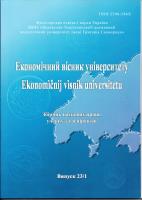
Keywords: intellectual property; objects of intellectual property; legal protection of intellectual property; investments; objects of industrial property; intellectual income; copyright law
The subject of research is the peculiarity of the development of intellectual property in conditions of the globalization influence onthe national economy.The purpose of scientific problem is to study the peculiarities of the development of intellectual property in the conditions oftransformations and the globalization changes in the national economy.Methods of research. The methods of abstraction, analysis and synthesis, systematization and generalization are used fordefinition the conceptual apparatus and the content of the assessment, foundation criteria and indices, classification directions andmethods of assessment.Methodology work. The main principles of the economic theory in economics of intellectual property; the works of domestic andforeign scientists and practitioners in this field.Results of work. The peculiarities of the development of intellectual property in conditions of transformations and the globalizationchanges of the national economy were considered in the context of the defined problem by us.Practical implications. The results of this study can be used in the study of problems of intellectual property and the economics ofintellectual property.Conclusions. Therefore, the modern trends of economic globalization and liberalization of world markets, the rapid progress oftechnology in the field of international communication systems, exacerbation and changes of the forms of competition, strengtheningof intellectual activity as the motive factor of the development of the information society – exacerbate the problems of regulatinginternational relations in the sphere of intellectual property. Consequently, rights of intellectual property become an importantinstrument in the global competition of states and their unions in access to innovative resources and markets innovative products.
More...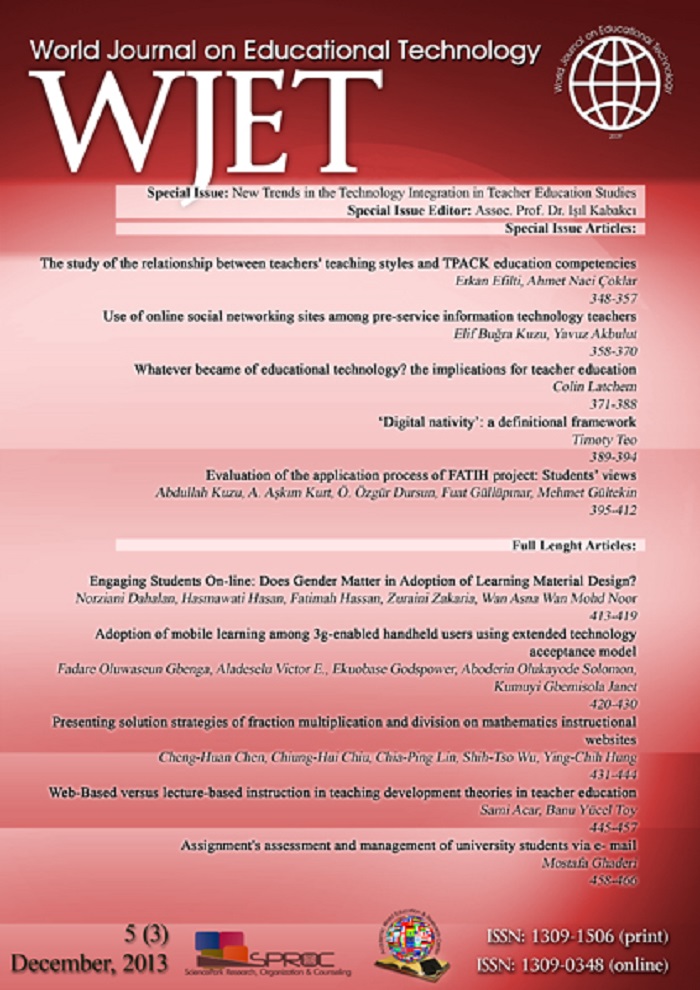
Keywords: Digital nativity; Digital native; Digital divide;
Since the term, ‘Digital Native’ has been coined; a plethora of research has followed. But, researchers have yet to reach a consensus on what the real digital native is like. There are several traits of digital native; such as their age who has born in or after 1980 and technology skills. The notion of age as a defining criterion for digital nativity has come under criticisms in recent years. Some studies found that, despite being born at the time period proposed for digital natives, students were ill prepared to work with technology. This paper focuses four attributes of digital nativity which alluded to digital natives. These are: grow up with technology, comfortable with multitasking, reliant on graphics for communication, and thrive on instant gratifications and rewards. From the growing volume of research on digital nativity, several implications for teaching and learning could be drawn. Future teachers should be equipped to teach and learn with technologies at their training stage.They should be exposed to and gain mastery in many new and emerging technologies with potentials for instructional purposes.
More...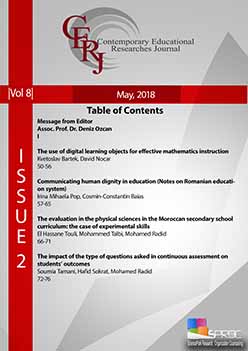
Keywords: Digital learning objects, DL; educational games; DLO repository; survey;
Digital learning objects (DLOs) can be defined as interactive (web-based) tools that are mainly used and reused for learning, education or training. In mathematics education, we use DLO for its potential to help students to understand phenomena, whose introduction in the traditional way of teaching mathematics could be problematic. We analysed one of the biggest and well known DLO repositories on the web RVP.cz, which is the main methodological support for teachers and implementation of the educational framework. We followed representation of the three DLO types of category 2 introduced in this text.
More...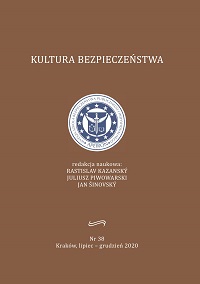
Keywords: cyberattack; information system; critical infrastructure; cybersecurity;
The article deals with protective measures against cyberattacks of information systems of the critical infrastructures and highlights some features of the cyberattacks against the information resources of national authorities. The main objective of the article is to define the characteristics of cyberattacks and the elements of a plan to counter cyberattacks of the critical information facilities. It has been found that a professionally organized cyberattack consists of several phases related to targeting, intelligence, access to the system, direct execution of the attack, and destruction of evidence of unauthorized interference. The results show that to protect the critical infrastructure facilities from cyberattacks, developed and implemented national cybersecurity standards must be developed in Ukraine, in particular for automated control systems of critical infrastructure facilities.
More...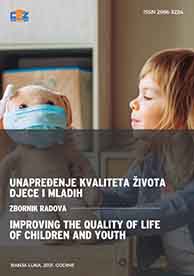
Keywords: education; support; students; university;
Education is a continuous process that lasts a lifetime. It improves the quality of life of every individual, and is guaranteed by the Constitution of Bosnia and Herzegovina, local legal acts, the Universal Declaration of Human Rights and other international documents. The main purpose of education is self-education and a quality fulfilled life. The University of Sarajevo continuously strives to create conditions for equal access and participation in quality education, respecting international legal frameworks, national documents and legal regulations, which ensure basic human rights, including the right to education. One of the mechanisms through which this is realized is the revitalization of the Student Support Office (UPS!). The main activity of the Office is focused on providing assistance and support to students and developing an inclusive culture, policy and practice in the field of higher education. The Student Support Office is available to all students of the University of Sarajevo, with a focus on students with disabilities, but also organizational units and academic staff. The Office's services are defined by its fundamental orientation towards creating an inclusive environment and promoting education for all, and is reflected in providing assistance and support to students in various fields. Basic services are: assistance in choosing studies; support for improving access to education; psychological help; student information and education; improving the study experience of students with disabilities; rental of assistive technology; research activities; organization and implementation of trainings for academic staff; organization of workshops for students; and many other services. The aim of this paper is to compile the realized activities of UPS! and describe their effects on improving the lives of young people in the university environment. The results contribute to a clearer articulation of arguments and advocacy of these and similar activities, and oblige the continuous strengthening of university capacities for preventive action and improving the quality of life and education of young people.
More...
Keywords: young people; labor market; social marginalization;
Young people as a historically specific, heterogeneous social group (age, developmental needs and possibilities) are a pillar of social development. For this reason, their position in the labor market and the economy is of a great importance for individuals and society as a whole. The position of young people in the labor market is conditioned by the development of the market, as well as by their education, skills and professional experience. However, all this does not depend on them, but also on how much society provides conditions and possibilities for young people for adequate access to education, training and labor market. The possibility of access to the labor market, the stability of employment and income are prerequisites for a dignified life, independent decision-making and economic independence from other individuals or social groups. The paper analyses unfavorable position of young people in the labor market (access difficulties, instability of employment and income) as one of the key factors which increases the risk of social marginalization of young people in modern society (insecurity of social position, exclusion from the main social relations and processes, unpromising future, etc.).
More...
Keywords: online sexual abuse and exploitation of children; documentation analysis; convicted perpetrators;
Cases of sexual abuse and exploitation of children are the most extreme forms of child abuse in the online environment. There is a lack of research findings in this field given the ethical and operational challenges of conducting the researches within this category of crimes. Although national legislation still uses the terminology of child pornography in an online environment, appropriate terminology based on international standards will be used in this paper. A research presented in this paper is conducted as analysis of the documentation of convicted perpetrators of sexual abuse and child exploitation in an online environment. Documentation analysis of the prison system and probation offices in the territory of the Republic of Croatia of convicted perpetrators of the criminal offense of sexual abuse and exploitation of children in the online environment in the last 5 years was conducted. The aim of the research is to contribute to a better understanding of criminal offenses against children and minors in the field of sexual abuse and exploitation in the online environment in Croatia, based on the identified socio-demographic characteristics of perpetrators and the characteristics of criminal offenses and sanctions. Given that this is a descriptive research that serves to describe the characteristics of the population of perpetrators as well as the description of the characteristics of criminal offenses and sanctions, it is not necessary to set problems and hypotheses of the research. For the purpose of this research, a checklist for data collection was constructed. The analysis of the available documentation included: verdicts, decisions on parole, individual programs of probation offices, reports from criminal-misdemeanor records and socio-anamnestic data of prisons or penitentiaries of convicted offenders. The research followed ethical guidelines in conducting the research, consent for the research was obtained from the Ministry of Justice and Public Administration. Due to the confidentiality of data from the analysis, personal data were removed from the analysis. Given the lack of research in this area, the results are significant for a better understanding of the crimes of child abuse and exploitation in the online environment and the characteristics of perpetrators, crimes and sanctions imposed in this area. The results can be useful to experts in the justice sector and other practitioners in the field of child protection.
More...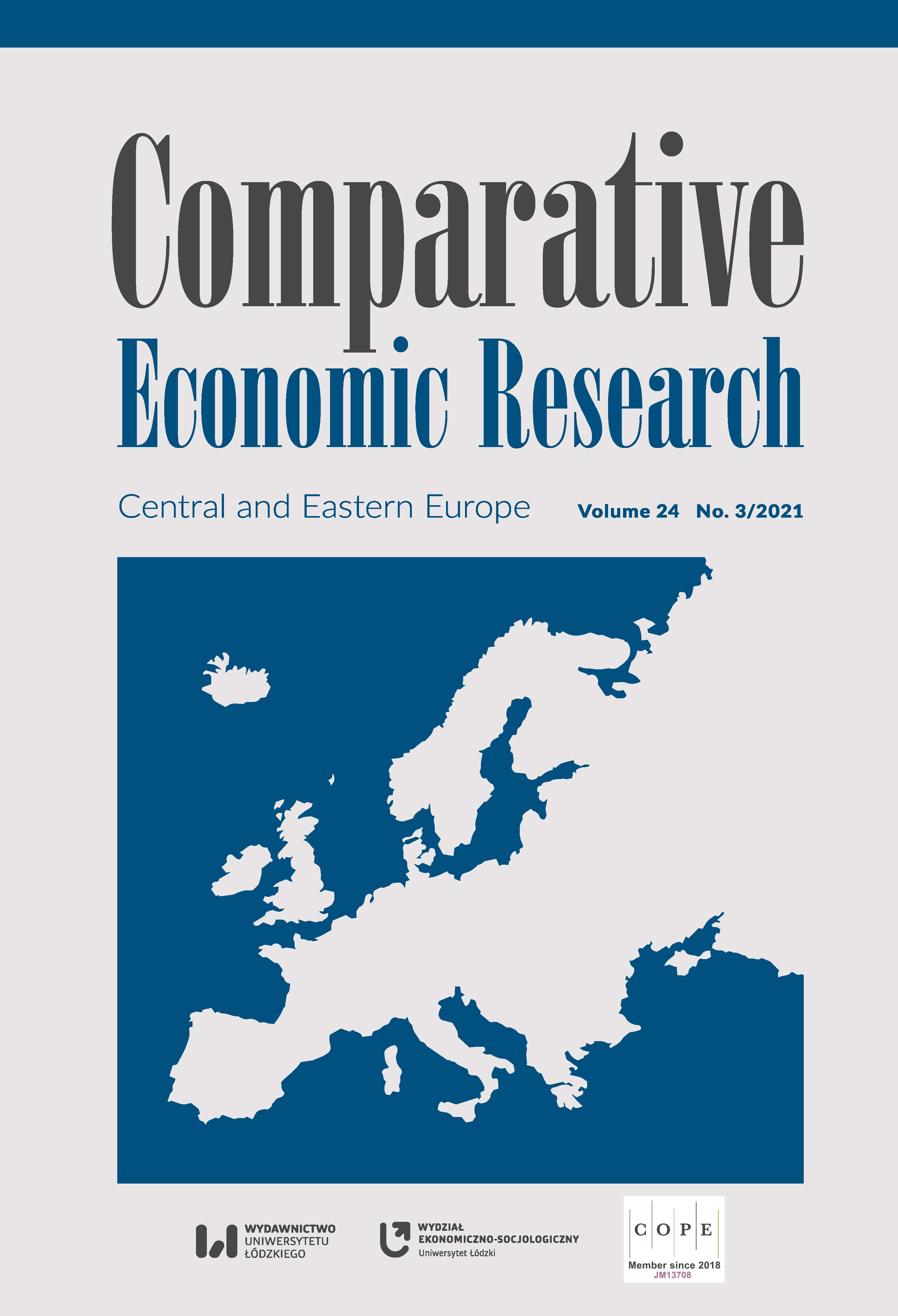
Keywords: transformation; digital economy; advanced technology products; global economy; European Union
The paper aims to present digital transformation as a process that has been taking place in the digital economy and the European Union’s economy in recent years and its impact on changes in the economic and social sphere. As a starting point, this paper considers the importance of advanced technology products in the global production and trade in the global and European economy, including information and communication technologies, which constitute the primary basis for the development of the digital economy. The paper shows that leading technologies can allow sustainable development goals (SDGs) to be achieved faster and more effectively. It is necessary to eliminate the persistent, significant income differences between developing and highly developed countries and disparities in access to the use of innovative solutions (including social innovation).
More...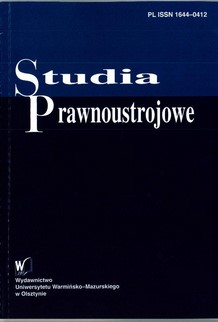
Keywords: fiscal law; regulations; Consitutional restrictions;
Traditionally, the two main tools of fiscal policy to create healthy economic growth are taxes and spending, both of which are subject to statutory and Consitutional restrictions. However, inflation, employment and the flow of money can also be affected through regulations, which are hindered neither by the need to collect taxes nor by restrictions on appropriations. Sound fiscal policy and fiscal law must consider the effects of regulations on economic performance, the proverbial elephant sitting in the room. Regulations, which have been called hidden taxes, play an increasingly greater role in the guidance of the U. S. economy. The recent performance of the US economy provides empirical evidence of the effects of reducing regulations as well as indications of the effects of regulation on innovation. In addition to the traditional primary tools of fiscal policy, taxes and spending, fiscal policy and fiscal law must consider the effects of regulations and the use of regulatory policy to affect the economy, inflation, and the flow of money through the economic system.
More...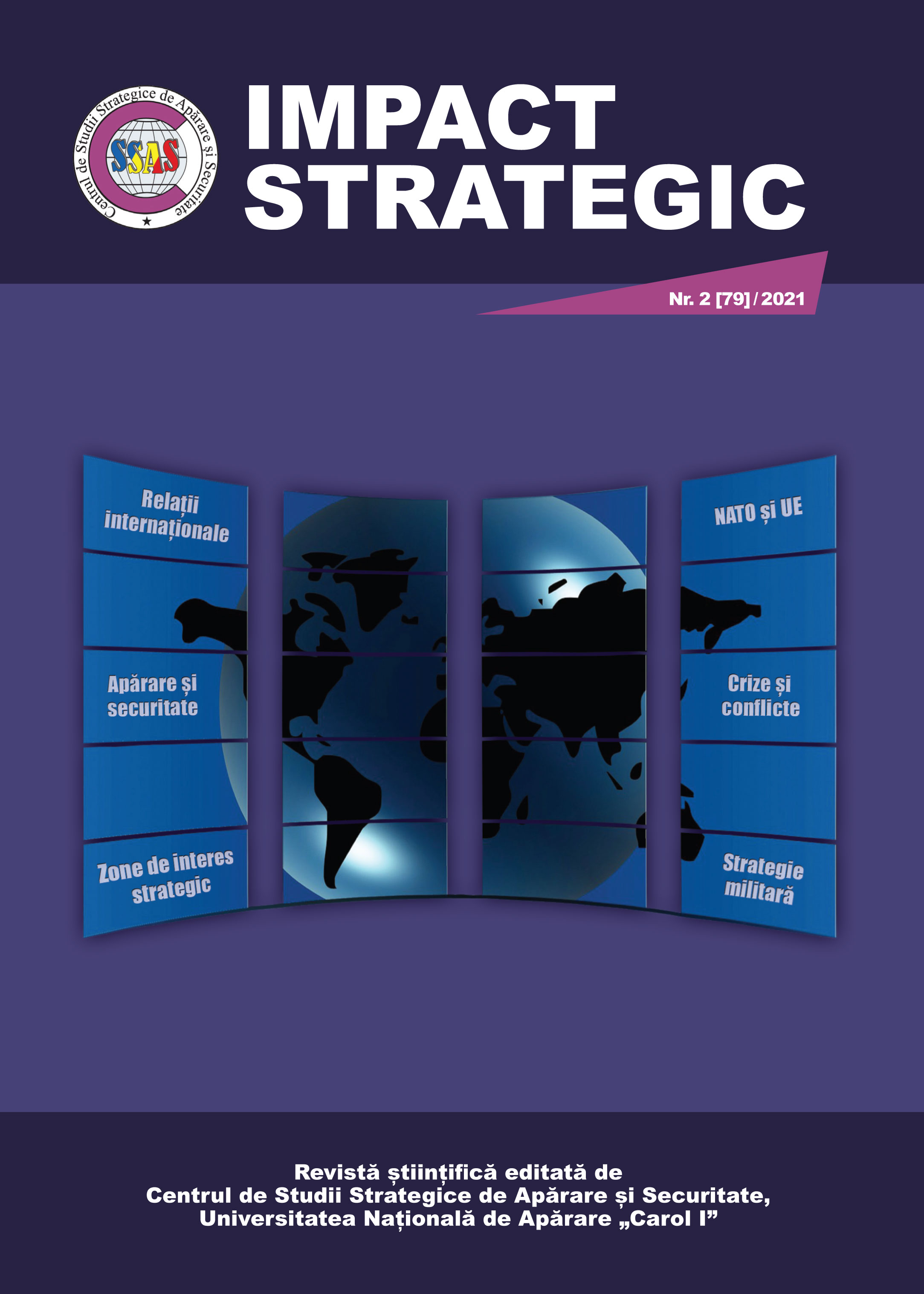
Keywords: Uniunea Europeană; Turcia; parteneriatul UE-Turcia; politica de extindere a UE; actor regional de securitate;
Relația UE-Turcia își găsește fundamentul în politica de extindere a UE, care reprezintă unul dintre cele mai importante instrumente de politică externă ale organizației. Integrarea unui actor relevant precum Turcia capătă astfel conotații importante la nivel regional, unul dintre câștigurile Turciei din această relație constituindu-l accesul la piața unică a UE. Deși începutul relației părea unul promițător, derularea ulterioară a acesteia este guvernată de nenumărate divergențe și tensiuni, rezultatul la care s-a ajuns până în prezent fiind elocvent: din 35 de capitole negociate pentru aderare, doar 16 au fost deschise, dintre acestea unul singur fiind închis provizoriu. Articolul de față evidențiază relația dintre cei doi actori, efortul fiind îndreptat spre analiza procesului de aderare a Turciei la UE. Prin analiza critică a literaturii de specialitate, a declarațiilor și a documentelor oficiale consacrate subiectului, lucrarea realizează o imagine de ansamblu a procesului de aderare și prezintă unele idei privind avantajele pe care ambii actori le pot obține din această relație. Ulterior, sunt emise o serie de opinii privind evoluția relației UE-Turcia, concluzionând cu faptul că, în viitorul apropiat, nu ne putem aștepta la o integrare totală a Turciei în UE.
More...
Keywords: COVID-19; Italy; health policy; pandemic; public health measures; policymakers;
Since the beginning of the COVID-19 pandemic, Italy was one of the worst-affected European countries. The rapid surge of cases and the limited capacity of intensive care unit departments have posed a serious threat to the Italian national health system. In this paper we describe the first response and the main measures carried by Italian policy makers, as coordinated by a governmental committee of public health experts, which have succeeded in preventing the pandemic from turning into a disaster. Early closure of the school, quarantine measures and lockdown were put in place and the response of the population has been good overall. Despite the Italian health care system of universal coverage is considered the second-best in the world, during phase 1, the Italian decentralisation and fragmentation of health services probably restricted timely interventions and effectiveness. In northern Italy, Lombardy, Emilia Romagna, Piedmont, and Veneto, which reported most of the Italian cases, carried out different strategies against COVID-19, with great differences in testing, quarantine, and public health procedures. The improvement of the epidemiological situation has allowed an easing of the restrictive measures, with a progressive restarting of work activities. The government and technical-scientific bodies have prepared health strategies to support a possible second epidemic wave in the autumn.
More...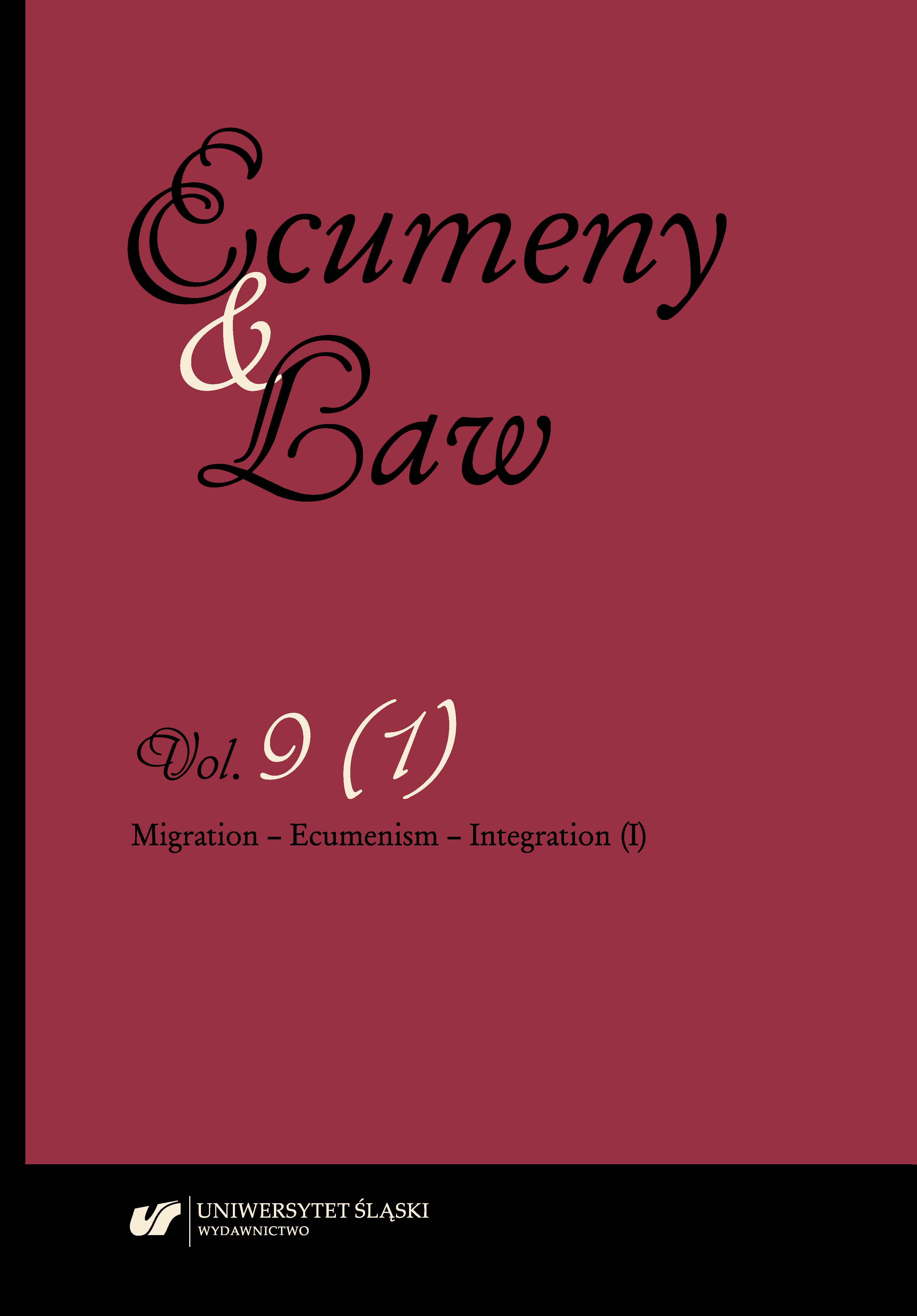
Keywords: Lutheran World Federation; migrants; mission of the Church; Evangelical Church of Augsburg Confession in Poland
The article presents Lutheran engagement for migrants, using the examples of activities undertaken by the Evangelical Church of the Augsburg Confession in Poland, as well as by the Lutheran World Federation, which is the biggest global organisation of Lutheran Churches all over the world. In case of the Evangelical Church of the Augsburg Confession the text provides an overview of the initiatives undertaken since 2015 in service to the migrants on the parish and Church levels, as well as in cooperation with ecumenical partners (including the activities within the Polish Ecumenical Council and in cooperation with the Catholic Church). In case of the Lutheran World Federation, the first step was to present the theological justification for the Federation’s engagement in the work for migrants, and the next one — to outline the characteristics of the work of the Department for World Service (Federation’s humanitarian agency) in 2018.
More...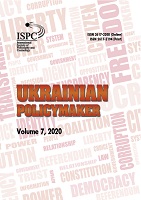
Keywords: China; Ukraine; Belt and Road Initiative; cultural interactions;
The article is devoted to the disclosure of the main problems and the definition of prospects in Ukrainian-Chinese relations within the Belt and Road Initiative. The main emphasis is placed on the problems in the field of politics, economy, and infrastructure, as well as the place of Ukraine in the Belt and Road Initiative. Also, attention is paid to the development of cultural relations between Ukraine and China and the prospects that it can bring.
More...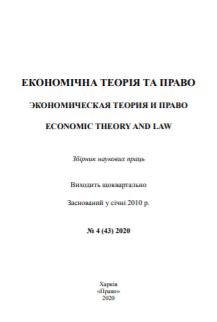
Keywords: Fourth Industrial Revolution (4IR); Industry 4.0; HR 4.0; digital economy; digital enterprise; digital workplace; human resources; personnel management; flexible teams;
The author analyses the influence of the Fourth Industrial Revolution on the sphere of human resources (HR 4.0). From the standpoint of system analysis, the author proposes to consider the digital transformation of the economy: firstly, as fundamental changes in technologies, forms, and methods of human activities; secondly, as strategic changes leading to the organizational transformation, revision of strategies, models, operations, and products. In the sphere of human resources management, under the HR 4.0, the author indicates the following changes: changes of requirements for key competencies of personnel; undertaking the conceptions of digital workplaces; the extreme change in the professional structure of employees; modifying the activities of HR departments, technologies, and tools for selecting and assessing the personnel effectiveness; the transition to flexible team building.
More...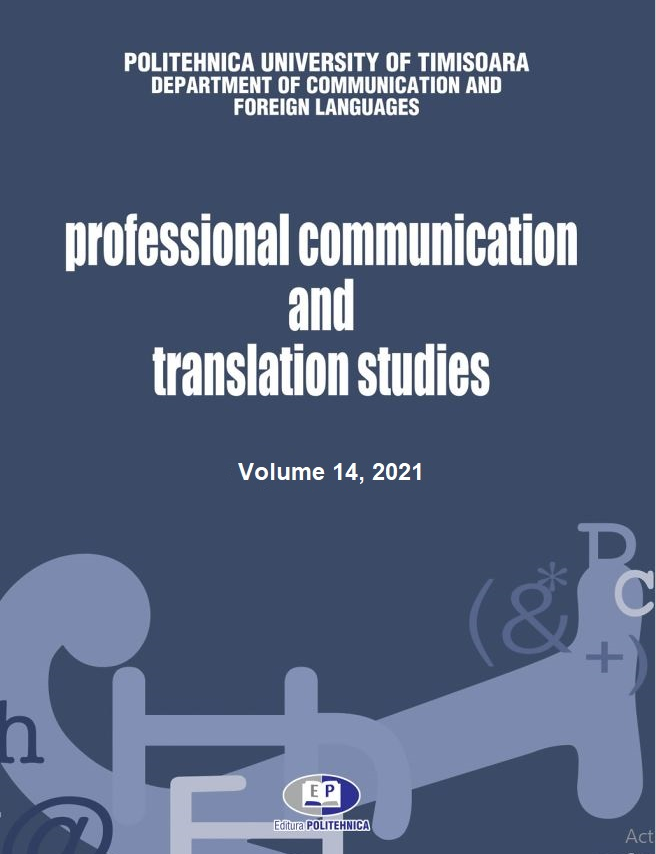
Keywords: discourse;EU language;interdisciplinary;
Translation is a process which has been in a continuous evolution and change of paradigm ever since the Tower of Babel and up to Google translate means. It has made its steps forward in accordance with the evolution of society and culture. Nowadays, European institutions are producing multiple documents: legislation, political speeches, declarations, directives, administration forms. This paper is zooming into the progress of translation and its present state in European documents texts, how challenging or more trouble-free than other types of translation it is and the difficulties encountered by the translator in the process of translating from the source language into the target language.
More...Keywords: Vaccination; Legal framework; European legislation; National legislation; Legal imitation;
The pandemic that appeared at the beginning of 2020 brought several challenges from the perspective of legal framework. An entire ensemble of normative acts has appeared in recent months and the challenges they have brought have had important consequences in terms of public law. Among these legal debates, one stood out, namely that of vaccination. Our text had in mind the legal aspects of this operation in the national and European space.
More...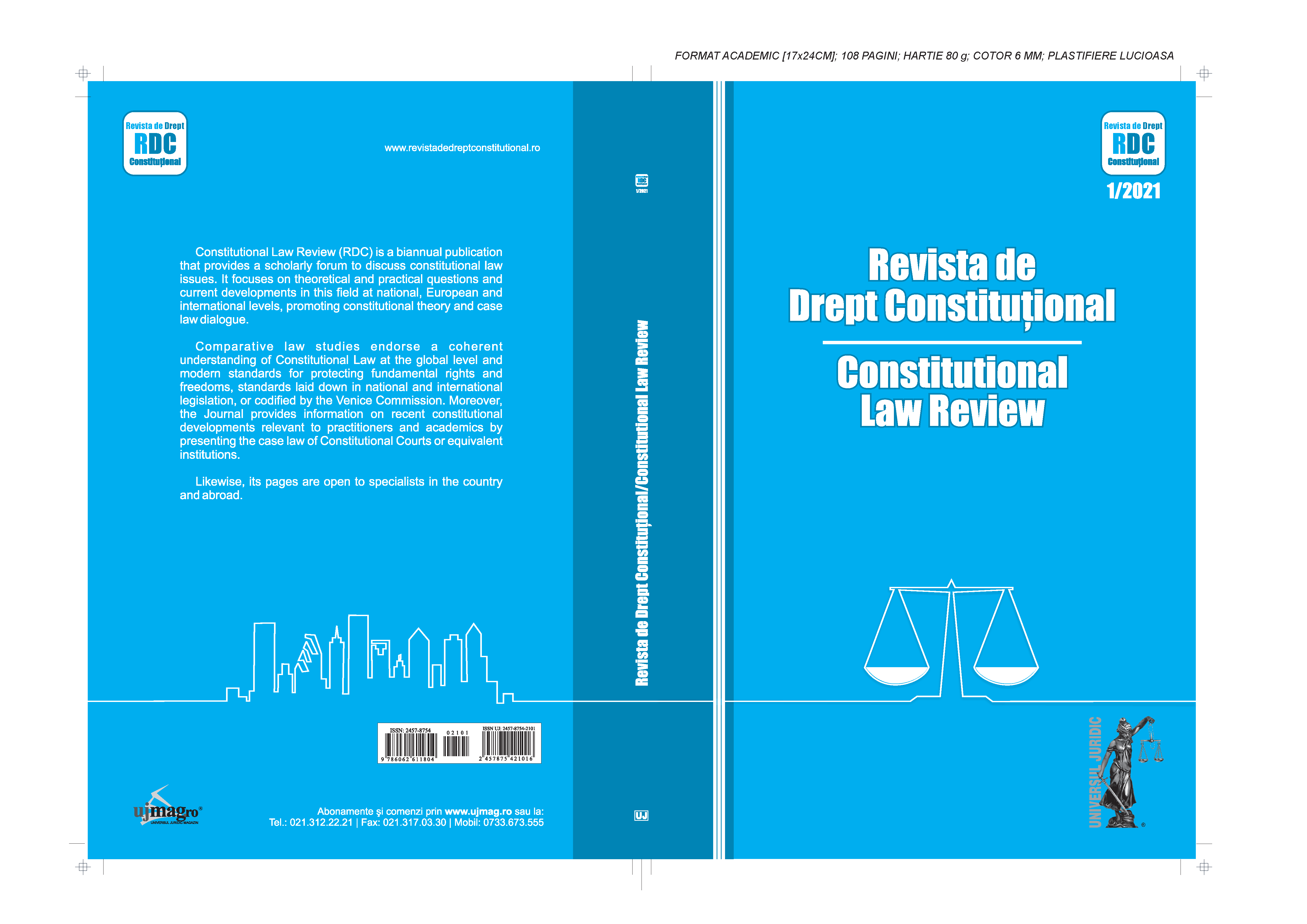
Keywords: gender; feminism; patriarchy; inequality; rights;
The revival of feminism in recent years has demonstrated that many women still remain profoundly disturbed by the nature of relationships between the sexes. The present paper aims to discuss several issues of feminism from the present times, while also keeping in focus the development of the phenomenon since it first appeared. Considering that the rights women demanded back then have been given to them (at least theoretically), the need for feminism nowadays might seem futile. By making references to only a few present events regarding women and their status in society, one will clearly see that feminism deals with serious problems that need to be dealt with as soon as possible
More...